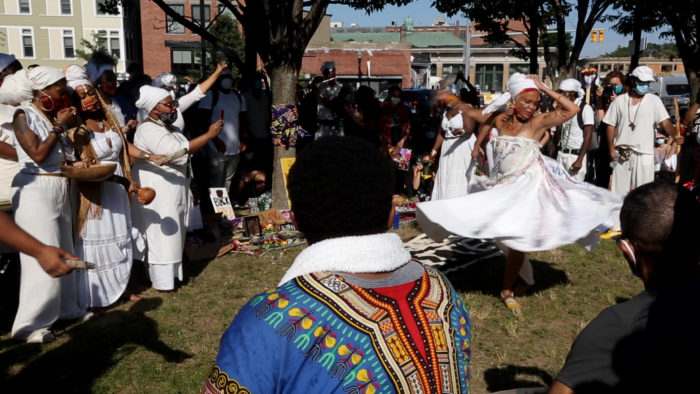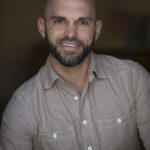
Thousands of protesters took to the streets on Saturday to “Say Her Name.” Marching from Nubian Square to Boston Common, Black Lives Matter Boston joined with allied community groups to denounce the state and domestic violence perpetrated against Black women, and to center Black women in the Movement for Black Lives.
“We are calling folks out here to celebrate, to lament, and to be in radical joy and love together,” Daunasia Yancey, founder of BLM Boston said.
Yancey also acknowledged the role that Black women have historically played in Black communities and in struggles for justice and liberation. The names of Ella Baker and Sojourner Truth were read aloud to the multiracial crowd of supporters, alongside the names of Breonna Taylor and Sandra Bland.
The mood in Nubian Square was festive as organizers danced and clapped along to the beat of drums.
“Joy, alongside pain and suffering is the way our people have always survived,” Karlene Griffiths Sekou, lead organizer with BLM Boston, said. “It is what has gotten us through the middle passage. It is not denying the darkness, but knowing, as our ancestors said, that weeping may endure for the night but joy cometh in the morning.”
In addition to celebrating Black women, Sekou said BLM Boston was also gathering to demand the city of Boston redirect the $40.1 million that is budgeted for policing into schools and resources that will benefit the community.
As activists continued through Boston’s South End, organizers called out gentrification and the history of segregation in the city, chanting “Black people used to live here!” Organizers said racist capitalist systems have diminished Black Bostonians’ quality of life, and these systems are built and maintained by politicians, real estate developers, and wealthy investors.
Indigenous activists joined the protest, and helped BLM Boston disrupt the false narrative on which the holiday is based. “Independence Day was never independent for all of us,” Sekou said. “This nation was built over and against the bodies of Indigenous people, of Black people, of LGBTQ and trans people. It was bought and celebrated over and against us.”
Gino Canella is an assistant professor of journalism at Emerson College. He produces documentary films in collaboration with community groups and researches activist media, social movements, and journalism.

